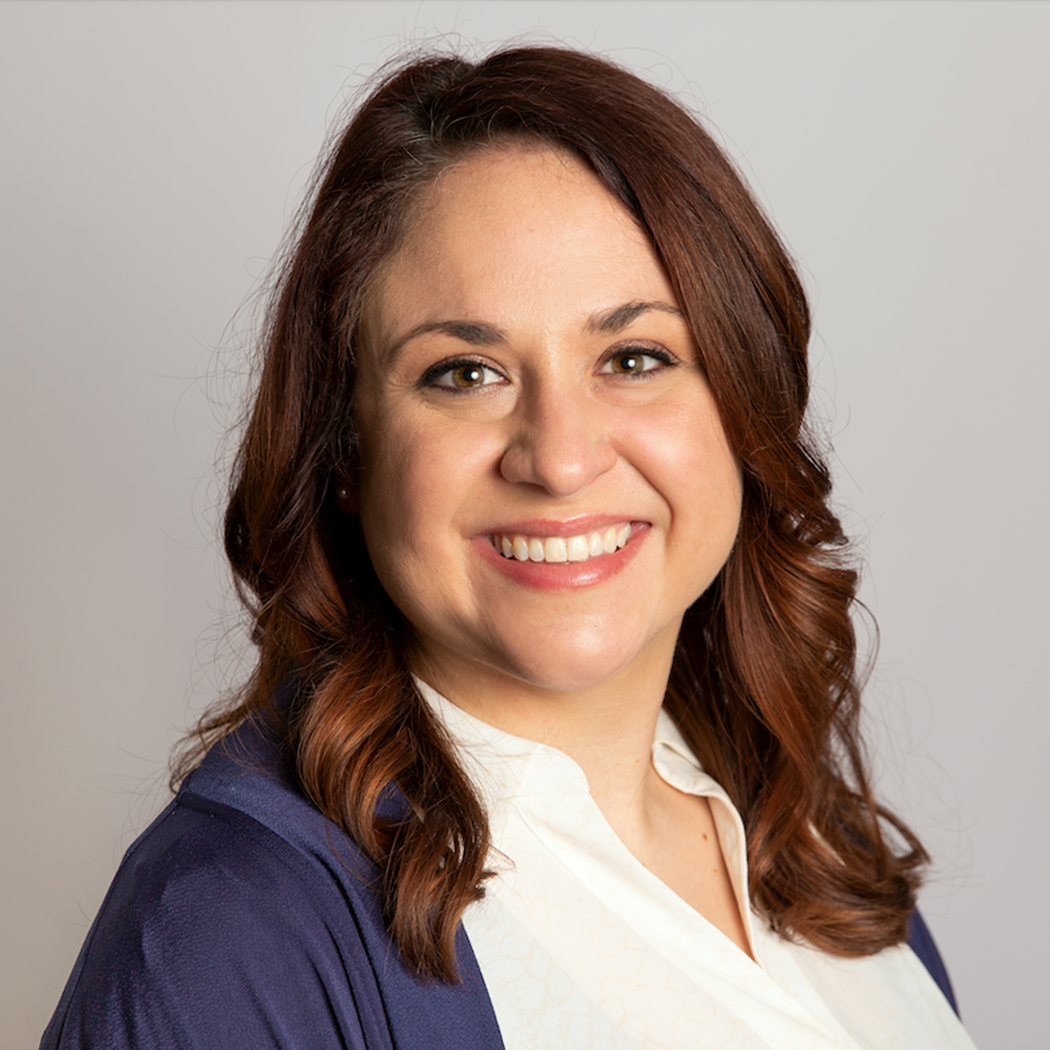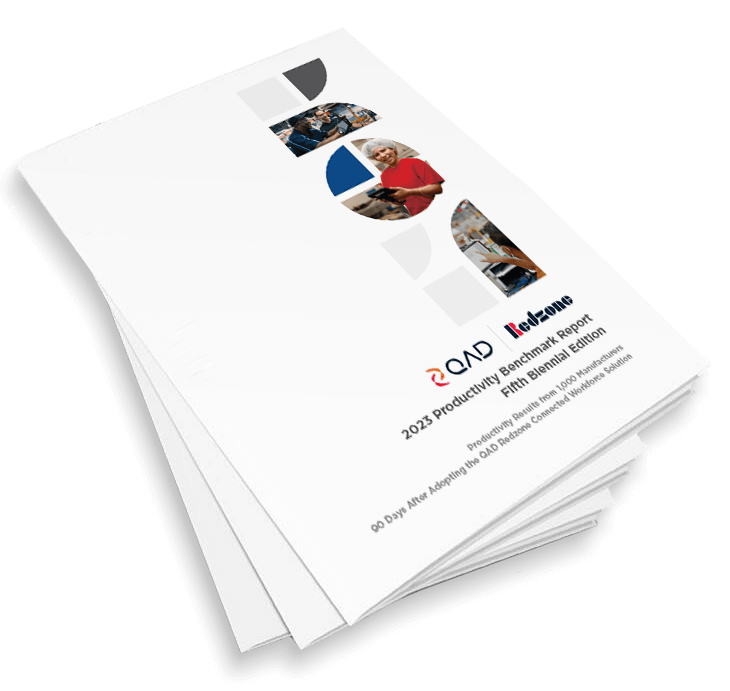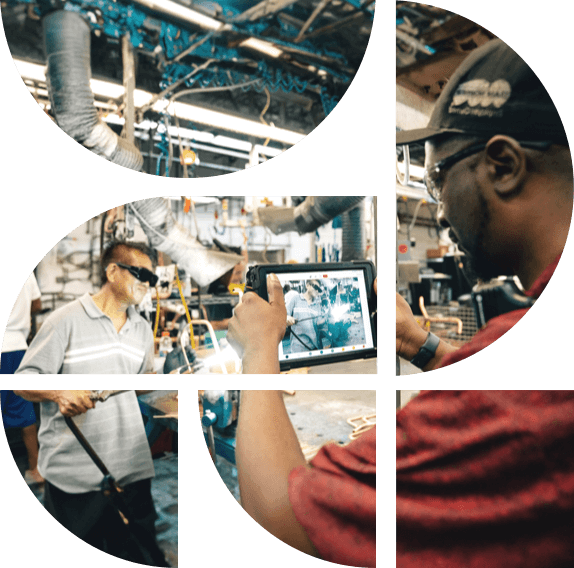Press Release: QAD Redzone is Front Runner in LNS Research Connected Frontline Workforce Applications Solution Selection Matrix Read Now
November 6, 2023

Welcome to Coaching Q&A, a series we’re running in our Factory Miracles magazine and on our website. We’ll share insights into our coaches’ backgrounds, motivations, and experiences working with customers.
Coaching Q&A: Meet Jennifer Burley, Operational Excellence Lead Coach, QAD Redzone
I have been working in manufacturing for more than 13 years. I began as a food technologist at a spice company and then moved to a discrete manufacturing company as a production manager. I ended up in an OpEx managerial role, overseeing lean initiatives across five countries and 17 facilities. My team had to deliver $1M in cost savings, which we accomplished by enabling the frontline workforce at our facilities in the U.S., Canada, Mexico, Argentina, and Brazil.
That role was a turning point because I discovered my passion for coaching. It was great rolling out lean training to frontline workers in different countries and cultures. I loved it. I then moved into a division manager role only to realize that coaching continuous improvement was where my heart belonged.
2. Why is manufacturing an exciting, dynamic industry to work in?
Manufacturing is a roller coaster ride. It’s full of twists and turns that keep you on the edge of your seat. What makes it so exciting is that innovation is happening everywhere. New technologies, materials, and processes are rolling out all the time.
In manufacturing, you interact with engineers, designers, technicians, and CEOs. Everyone is working together to produce great products that are used around the world.
And the best part? It’s not just about making things: It’s about solving real-world challenges. That’s the kind of thrill you get in manufacturing, where every day is an opportunity for growth and making a tangible impact.
3. How did you learn about QAD Redzone, and why did you decide to join as a coach?
I was looking at different opportunities on LinkedIn. There was a job description for a CI (continuous improvement) manager role. And it looked too good to be true. The role involved traveling, coaching, and making a positive impact on plants and teams around the world.
After speaking with the recruiter, I had deja vu. The job at QAD Redzone was like my previous role but on a much grander scale. It offered an incredible opportunity to work with customers to pair behaviors and CI lean culture with a tool that focuses teams’ hard work on improving outcomes. I was really pleased to be picked for the role.
4. What was your most memorable deployment and why?
Empire Bakery is a small cake-decorating company located in Rocky Mount, Virginia. In nine weeks, we did two deployments – Productivity and Compliance – and the team achieved a 44% uplift. The team threw the most epic, engaging, empowering party to celebrate its victory lap. They made homemade pinatas and had a contest to see who could decorate the best QAD Redzone cake. In addition, managers competed to see who could complete the most challenging cake design the fastest.
This company had the magic sauce to make everything work. The leadership team was highly engaged. They were out on the floor, making sure the teams were comfortable using QAD Redzone, and they challenged their teams to improve current processes. And teams would cheer when one person came up with a great idea that worked.
Empire Bakery is using QAD Redzone to distribute labor more evenly, produce quality cakes faster, and expand into new business areas.
What’s been great to see is how the tool’s language capabilities have empowered workers. Many workers weren’t comfortable speaking up before because they didn’t speak much English. Now, these workers are leading the charge.
Digna Cedillo, a production lead, was selected as an MVP at the QAD Redzone Community Awards this year. She has used the tool to learn English, lead Huddles, coach team members on decorating processes, and train on quality processes. Digna is truly passionate about helping everyone improve, such as teaching less skilled workers how to improve their decorating skills and level up.
5. What are the key things you are looking for when you visit a QAD Redzone customer site for the first time?
There are two main things I look for when I visit a customer for the first time.
First, I go to the floor. The floor is the heartbeat of production. The workers always tell you the truth, which is how you discover problems and opportunities.
Then, I visit with a plant’s supervisors and leaders. Ideally, leaders have bought into the QAD Redzone deployment. They inspire their teams to focus on quality and innovation and build morale every day. That’s a recipe for success – one I saw in action at Empire Bakery.
If that’s not the case, then that’s something I tackle right away. I seek to become a trusted advisor and influence these leaders to see the bigger picture so that they can empower their frontline teams to drive change.
6. What is the most satisfying part of your job?
I like a-ha moments. You’ll be on the manufacturing floor, working with teams as they try and crack a problem.
A line lead will look at a piece of equipment or a situation, get an idea, and then enter it into the QAD Redzone app on an iPad to share it with others. There’s a look in people’s eyes when they start to connect the dots on how using the tool and adopting behaviors drives performance improvements. And then everything just clicks. That’s rewarding to watch.
I remember once at HP Hood, a belt on the line had a snag. The operator snapped a picture and sent a message to maintenance so that they could repair it proactively. The team realized later that if it had broken, they would have waited upwards of 32 weeks for a replacement because of COVID-related supply chain issues. The entire team, from the operator to maintenance, became hooked on this feature because it helped them prevent problems that could have had major business impacts.
I also really love doing Kaizens and showing teams how they can improve the processes they use every day.
When we launched the QAD Redzone Reliability module at HP Hood, we did a Kaizen for the rebuild process, focusing on changes for the better and continuous improvement. During Reliability implementation, you teach frontline workers how to own and care for the equipment as a form of preventative maintenance so techs aren’t constantly fighting fires. As a result, maintenance techs gain the time they need to do other activities, like rebuilding parts, so they don’t have to buy brand-new parts every week.
During the Kaizen, we laid out the process. However, the maintenance team was skeptical because they thought the process couldn’t improve.
We went through the process of mapping everything out. Within one week, we sorted and organized numerous parts for repair: identifying what needed to be rebuilt and creating a colorized sorting system that made it easier for techs to find everything they needed. The maintenance team saw how well it worked and offered even more suggestions for improving processes.
Previously, it would have taken two weeks to purchase and receive a new part or two plus hours to fix and reinstall a broken part. With the new system, the techs could replace it in 15 minutes because they already had a spare on hand.
So, Kaizens enable teams to see and fix problems before catastrophes occur. They also help drive smaller improvements across multiple areas. As a result, workers make processes the best that they can be so that they can get everything they need out of them.
7. What would be your advice to those starting their coaching career in manufacturing?
Treat every moment as a chance to learn. Every person, manufacturing floor, culture, and situation is different. As a result, everything is a new learning opportunity.
You must become a chameleon and adjust your coaching style to fit each new customer like a glove. It’s not always easy to set aside your pride and do it. But it’s the kind of effort that pays off in the long run.
Flexibility and adaptability are the secret sauce to working with customers, helping to solve their problems, and making a positive impact wherever you go.
1,000 Factories’ Productivity Data: The Largest Dataset of Its Kind ...

Contact us and let's begin empowering your frontline and growing your bottomline.
